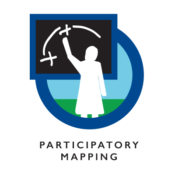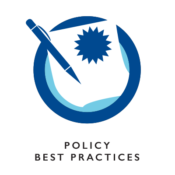The Tenure and Global Climate Change (TGCC) project assisted USAID’s Land and Urban Office to identify and test models that strengthen resource tenure governance and property rights to help people develop sustainable livelihoods and protect the environment. TGCC developed models and ran pilot programs globally that were studied and adapted to the needs of communities and local government.

To be considered successful, most development work measures its results in terms of sustainability — how well the work continues after a project ends. TGCC kept the important goal of sustainability in the forefront and added an ownership component — ensuring that the farms, fields and fisheries improved by development will be owned by the beneficiary. This allows a farmer to look past one or two growing seasons and towards generational growth in their property, investments and participation in development projects.
The eye toward the future approach in the TGCC project combined the long-term benefits of land tenure, or property rights, with a stewardship of the soil, forests and coastal areas. The environmental aspect is essential to successful tenure as its inclusion makes better and more productive farmlands and fishing areas. Whole of community planning, climate-smart agriculture techniques sharing, and certification of land combined to create livelihoods that last, and can be passed on to husbands, wives and children. TGCC emphasized sustainability, for people, for property and for the planet.
On this site, you’ll find information on TGCC’s objectives, where it operated, and reports, documentation and assessments on its findings and achievements. To read documentation on the TGCC pilot project and to learn how TGCC can work for you, please click on the links in the Project Documentation and Learn More sections below. You can also sign up for updates, see pictures from the field and contact us.

The TGCC projects worked in two ways: through pilot projects with local civil society organizations in select countries and thematic assessments and research on the environmental and economic impact of tenure issues. Within these methods, TGCC developed new mechanisms that help engage with communities, government and civil society organizations. Examples of these mechanisms include:
By Country
To read documentation on TGCC pilot projects and reports and learn how TGCC can work for you in specific countries, please click on the links below.
Field Implementation:
BURMA | GHANA | VIETNAM | ZAMBIA
Field Assistance (Assessments):
BANGLADESH | GUATEMALA | HONDURAS | INDONESIA | NEPAL | PANAMA | PARAGUAY | PHILIPPINES | TANZANIA






